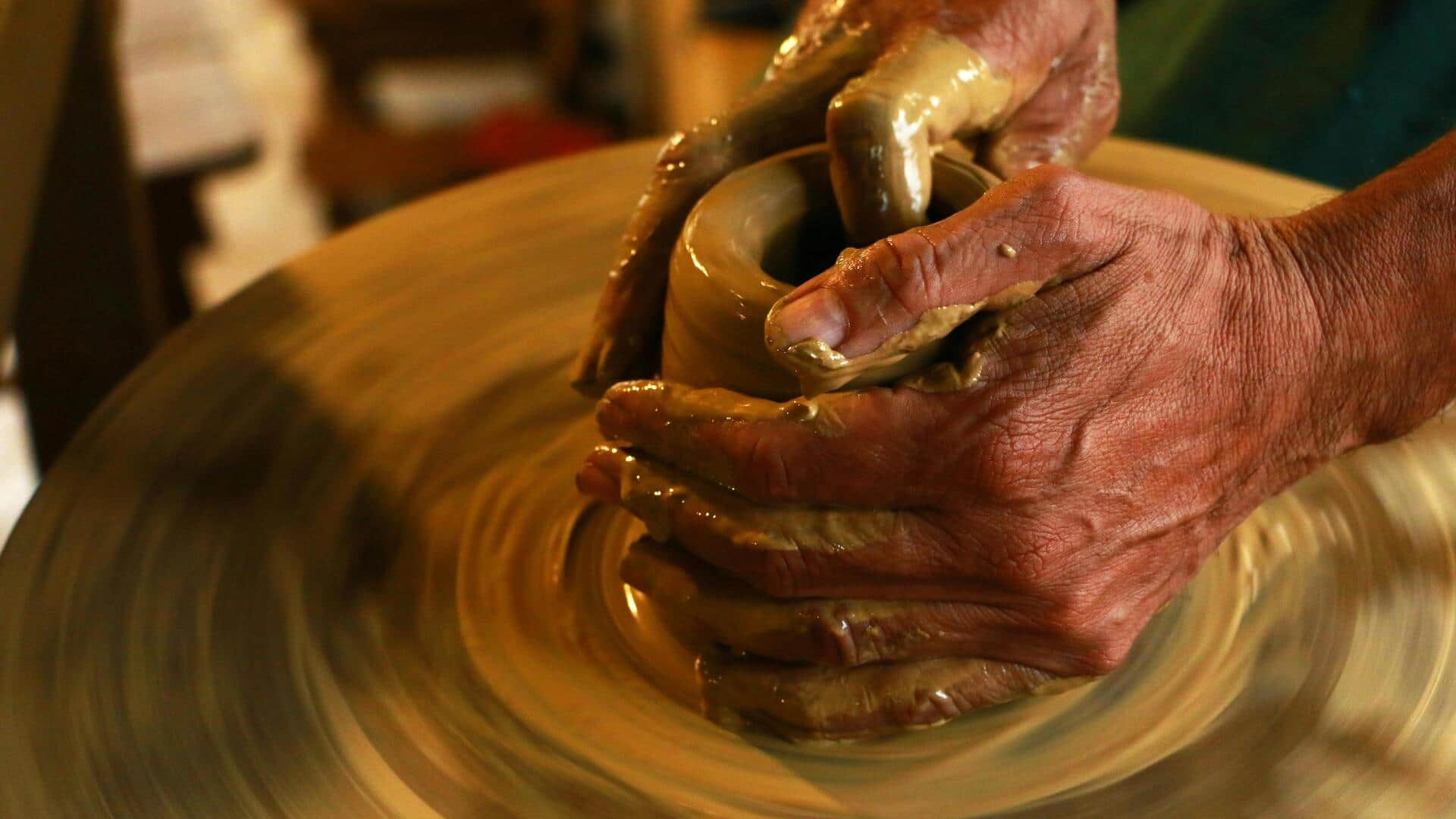
Your first pottery project? Master these basics before you start
What's the story
Pottery is a beautiful art form that has been practiced for centuries. It is a creative way to express oneself, and can be both therapeutic and rewarding. For beginners, learning the basics of pottery can open up a world of possibilities. From understanding different types of clay to mastering the art of shaping and glazing, here are some essential tips to help you get started on your pottery journey.
Tip 1
Choosing the right clay
Selecting the right clay is essential for any pottery project. Beginners should opt for earthenware clay, as it is easy to work with and forgiving during the firing process. It stays pliable until it dries out completely, which gives you more time to shape your creation. Once you get comfortable, you can experiment with stoneware or porcelain clays that offer different textures and finishes.
Tip 2
Mastering basic techniques
Before you start creating intricate designs, it is important to master basic techniques like pinching, coiling, and slab building. Pinching involves shaping clay by pressing it between fingers; coiling uses rolled strips of clay stacked on top of one another; slab building uses flat pieces joined together. These techniques form the foundation of many pottery projects.
Tip 3
Understanding glazing basics
Glazing adds color and protects your pottery from moisture damage. Beginners should start by learning about different types of glazes available in the market, such as glossy, matte, and transparent, and how each one affects the final look when applied to bisque-fired pieces. Experimenting with small test tiles before applying glaze on larger projects can help understand how each type reacts during firing.
Tip 4
Tools every beginner needs
Investing in basic tools like a potter's wheel, sponge, needle tool, wire cutter, wooden rib, and loop tool will make your pottery experience smoother. These tools help with shaping, smoothing, trimming, and detailing your work, giving you the precision and control you need to create beautiful pieces. They are essential for both beginners and experienced potters, making them a must-have for anyone starting their pottery journey.